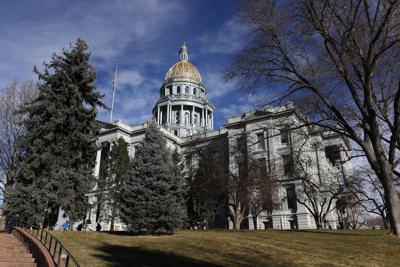The signature housing bill of the 2024 session, which deals with "transit-oriented" communities, cleared a substantially different Senate Transportation & Energy Committee Tuesday evening.
House Bill 1313 won a 4-3 vote after the Senate sponsor, Sen. Faith Winter, D-Westminster, won approval for a slate of amendments intended to address some of the bill's strongest criticisms from local governments.
But the changes may cost the bill support from progressive Democrats in the state Senate.
HB 1313 requires affordable housing to be constructed adjacent to transit. That means supported by public subsidies, "inclusionary" zoning ordinances, and deed restrictions, which restrict or limit maximum rental or sale price. The bill also requires a period when only low- or moderate-income households could qualify. The measure requires housing density in these "transit-oriented" communities at about 40 units per acre.
The measure applies to about 31 municipalities that are part of a metropolitan planning organization (MPO). There are five MPOs in Colorado: The Denver Regional Council of Governments, the North Front Range MPO, the Pikes Peak Area Council of Governments, the Pueblo Area Council of Governments and the Grand Valley MPO.
That limits the impact of HB 1313 to the state's largest metro areas, mainly along the Front Range, and excludes mountain and rural communities that don't have transit centers.
Opponents have noted that even within the metropolitan planning organizations, some communities lack access to transit — either light rail or bus service — and lack the infrastructure to meet the bill's mandates.
One of the bill's major issues for local officials is the bill's penalty for local governments that don't go along with the zoning mandates. The penalty for failing to play ball is the loss of state transportation funding, which for some counties is as much as 50% of the funding they have for road and bridge projects.
The other sticking point is that the state could apply for court injunctions to force the local governments to participate.
Winter offered amendments Tuesday to take all of that out.
That's likely to appease local governments and some House Democrats, who vowed to work for the defeat of HB 1313 if it came back to the House with those provisions included.
But it likely doesn't sit as well with Sen. Julie Gonzales, D-Denver, believed to be the swing vote on Tuesday and who wanted to see the penalty and injunction language kept in the bill. She voted in favor "for now," a sign she would seek more changes as it moves forward.
The bill's funding also went by the wayside, which local government officials claimed would make the bill an unfunded mandate. The bill as it left the House had $35 million in tax credits.
That came out, too, and helped the bill avoid a trip to the Senate Finance Committee, where its future was uncertain.
The importance of today's actions was emphasized by the new look of the transportation committee on Tuesday: Out of seven members of the committee, four were substitutes, including three of the committee's usual Democratic members and one committee Republican.
The changes may make the bill slightly more palatable to local governments, but its preemption of local control in favor of state mandates isn't likely to move them to support the measure.
HB 1313 now heads to the Senate Appropriations Committee.


(0) comments
Welcome to the discussion.
Log In
Post a comment as Guest
Keep it Clean. Please avoid obscene, vulgar, lewd, racist or sexually-oriented language.
PLEASE TURN OFF YOUR CAPS LOCK.
Don't Threaten. Threats of harming another person will not be tolerated.
Be Truthful. Don't knowingly lie about anyone or anything.
Be Nice. No racism, sexism or any sort of -ism that is degrading to another person.
Be Proactive. Use the 'Report' link on each comment to let us know of abusive posts.
Share with Us. We'd love to hear eyewitness accounts, the history behind an article.